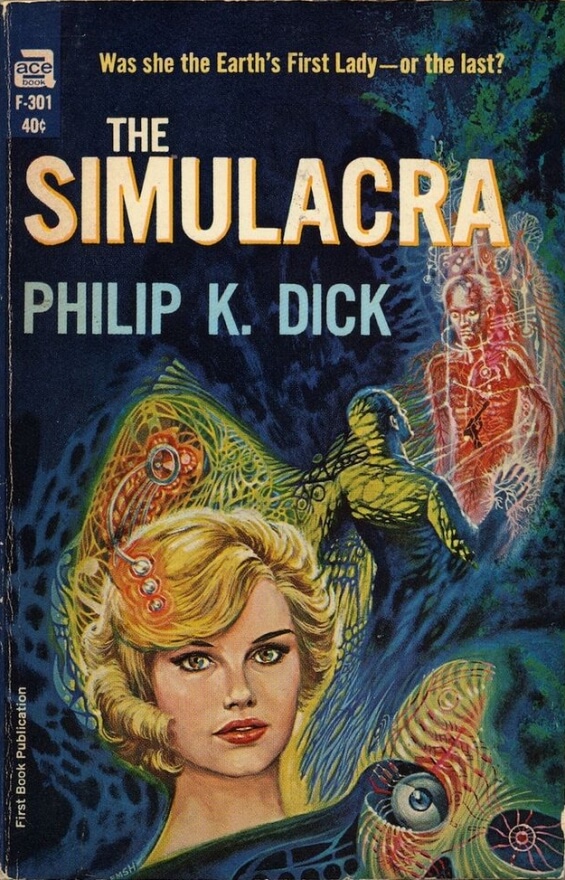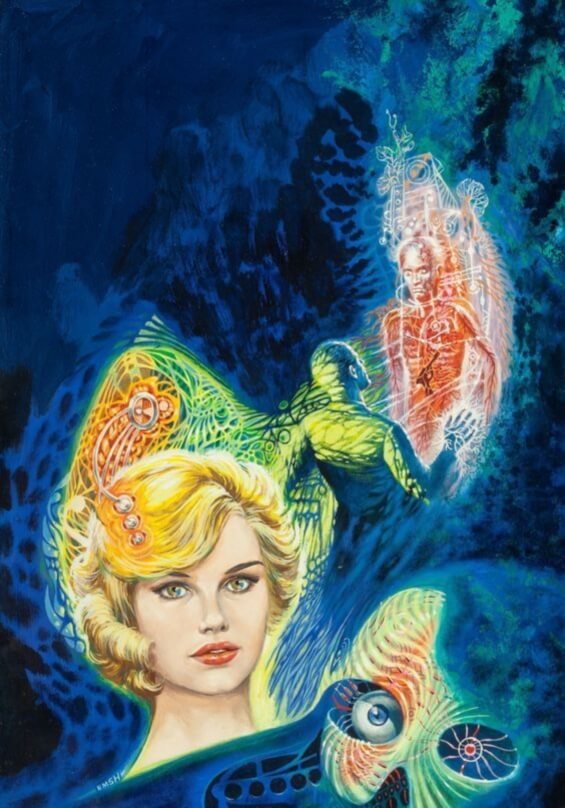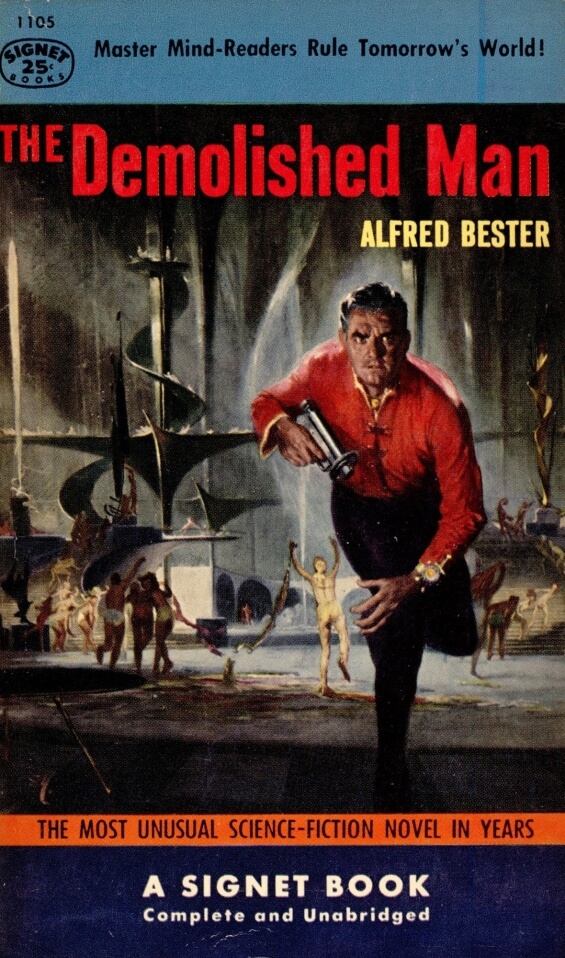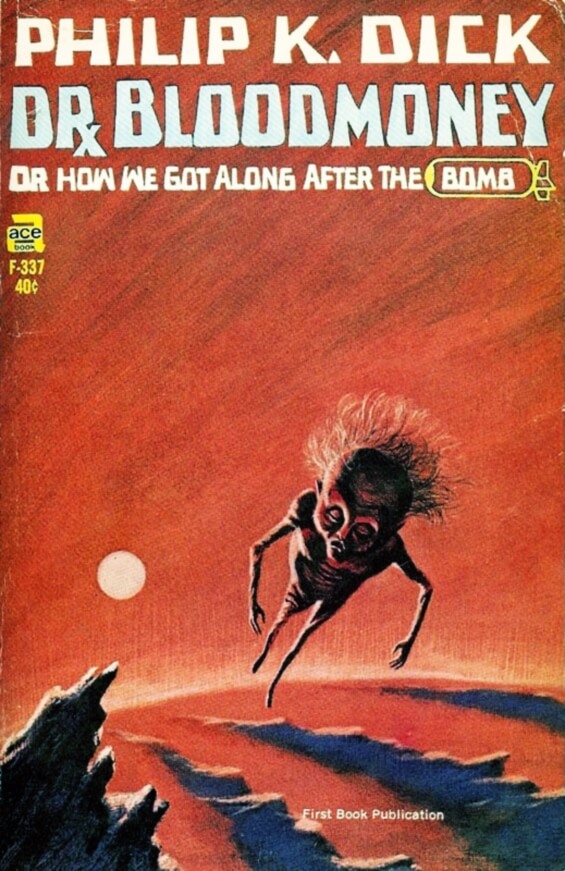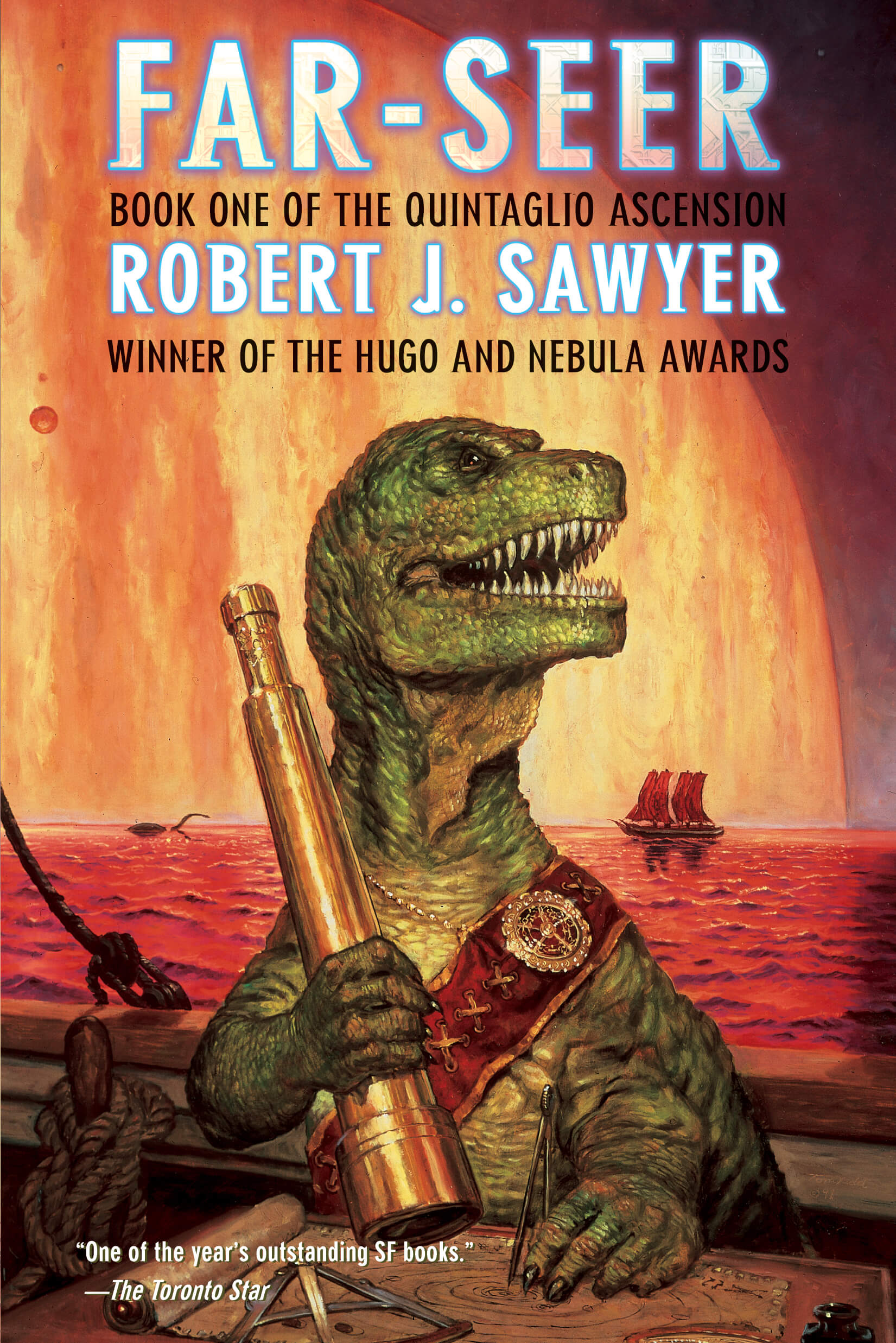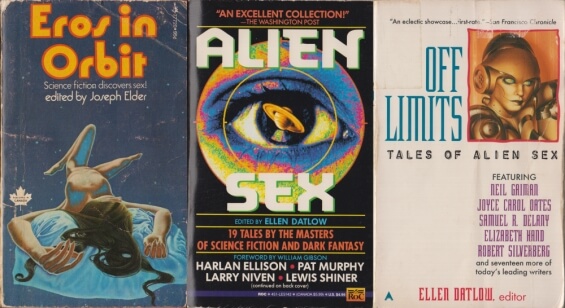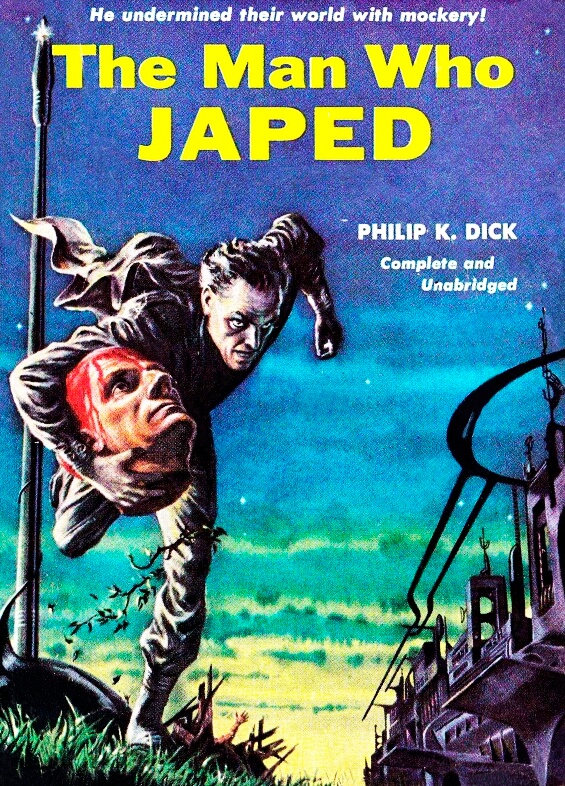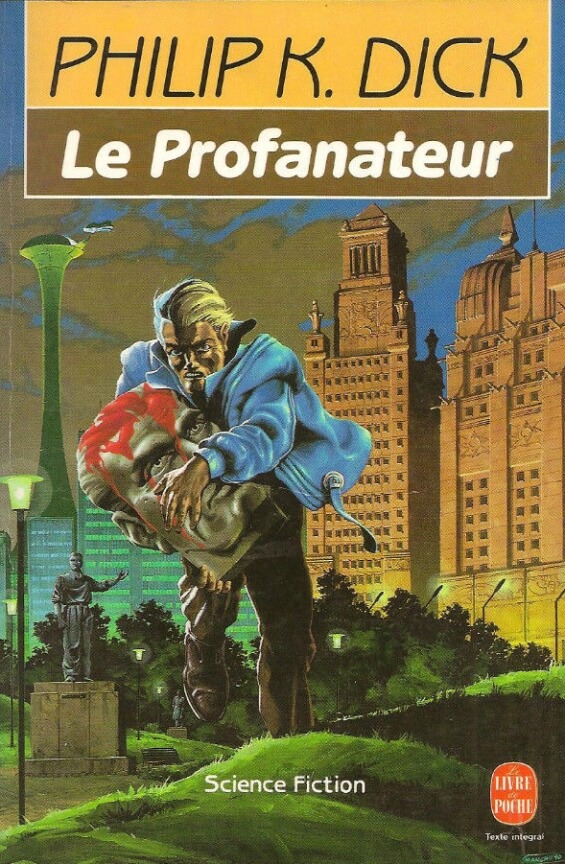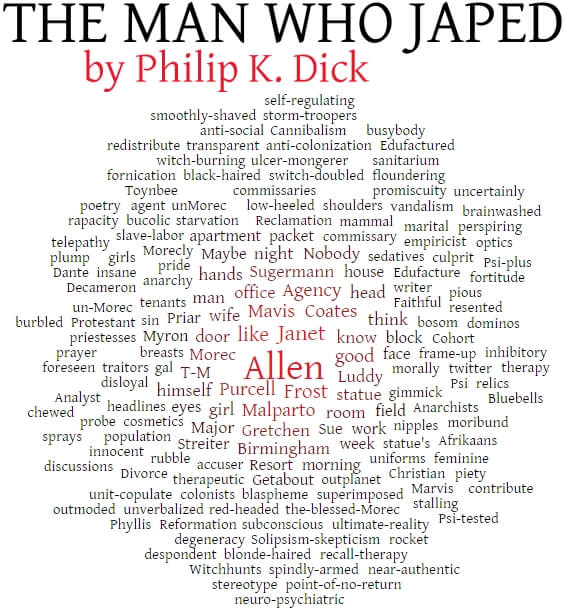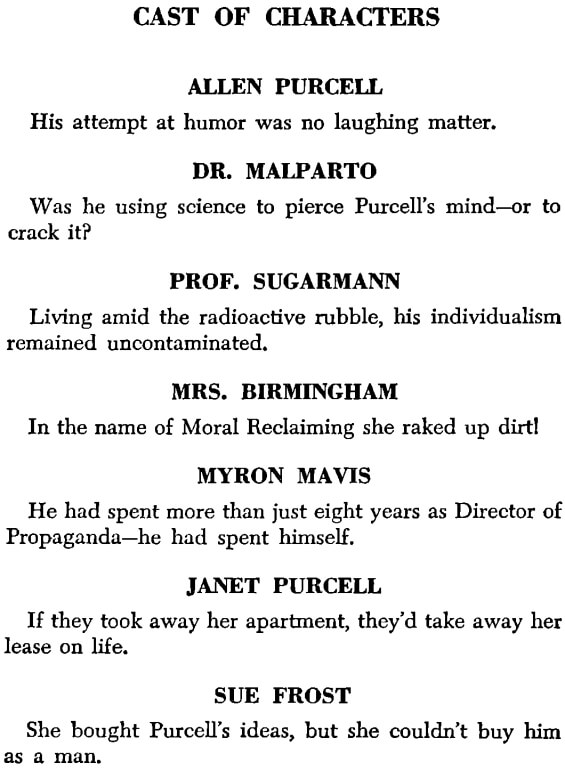
 The SFFaudio Podcast #347 – Jesse, Paul, and Marissa talk about The Man In The High Castle by Philip K. Dick.
The SFFaudio Podcast #347 – Jesse, Paul, and Marissa talk about The Man In The High Castle by Philip K. Dick.
Talked about on today’s show:
1962, Jesse and Paul’s first ever Philip K. Dick novel, rush reading, Juliana Frink, the book within the book, The Grasshopper Lies Heavy, The Book Of Changes, the book that we are within, more like something Olaf Stapledon would write, future histories vs. alternate histories, what the Japanese and Nazis have done, For Want Of A Nail by Robert Sobel, Mexico, a very odd strange alternate history, a textbook from an alternate world, acharacteristic Dick, The Rise And Fall Of The Third Reich, jewelry, taken from his life, Anne Dick, a soul wrenching scene, soul churning horrific embarrassing, working retail, R. Childan is horrible, he’s a monster, the least Philip K. Dick book, not a lot of boobs (but still some), not that much coffee, why this book is so powerful, we are so close to the characters souls, sympathy, who is the main character of this book?, Juliana, R. Childan, Mr. Baynes, Frank, Mr. Tagomi, so little interaction between the characters, we don’t know it is Frank, a clever move, everybody is fake, R. Childan is not Robert Childan, he speech pattern and thought pattern are Japanese, a lack of pronouns, Dick is a chameleon, Paul and Betty, the authentic American experience, soaking up, that’s not their names, Paul and Betty Kasura are more American than the American, Juliana is a fake judo instructor, she uses a knife, Hawthorne Abendsen, we know where he lives, Hawthorne Abendsen is Robert A. Heinlein for Dick (and Dick himself), children, Heinlein’s house in Colorado, Heinlein had loaned Dick money, Dick owed money to the IRS, We Can Build You, “To Robert and Ginny Heinlein…”, Wyoming, Dick is buried in Colorado, Fort Morgan, Colorado, Riverside Cemetery, damn, Dick’s sister, mom and dad, D.C., agrarian agronomy?, California, the dedication, “To my wife Anne, without whose silence…”, the jewelry business, getting excited, a bit sulky and a little bitter, a line from Childan’s mind, this sounds like its true,
They’re out of their minds, Childan said to himself. Example: they won’t help a hurt man up from the gutter due to the obligation it imposes. What do you call that? I say that’s typical; just what you’d expect from a race that when told to duplicate a British destroyer managed even to copy the patches on the boiler as well as—
the stamp on the boiler “Made in Aberdeen” or whatever, is this a true fact?, the objects, the pistol, Ed and Frank, the fake pistols are real pistols, the two lighters, Roosevelt’s lighter, historicity, historically interesting, the provenance, superstition of historicity, the real McCoy, you feel it, if Mr. Tagomi’s civil war era replica revolver can do the job…, Dick’s theme for the whole book, the theme that he’s always engaging, this stuff, actual facts of history, these events happened, the answer in this particular case…, historific truth, afraid to ask the question, this truth about the world, strangely meta-fictional, Tagomi escapes the meta-fictional world, a true and genuine object, the real state of affairs, cars and the freeway, our world is a nightmare, a depressing two world Cold War between the U.S. and England, C.M. Kornbluth’s Two Dooms, set in the 1940s, a future where the U.S. has lost the war, an alternate broken U.S., captured by the Germans, secret Jewish magical power, the world if we don’t is too terrible to contemplate, a repeated scene (or feeling), Mr. Baynes on the rocket, from Europe to San Fransisco, Lotze,”Oh, yes; that’s so. But racially, you’re quite close. For all intents and purposes the same.”
Lotze began to stir around in his seat, getting ready to unfasten the elaborate belts.
Am I racially kin to this man? Baynes wondered. So closely so that for all intents and purposes it is the same? Then it is in me, too, the psychotic streak. A psychotic world we live in. The madmen are in power. How long have we known this? Faced this? And-how many of us do know it? Not Lotze. Perhaps if you know you are insane then you are not insane. Or you are becoming sane, finally. Waking up. I suppose only a few are aware of all this. Isolated persons here and there. But the broad masses… what do they think? All these hundreds of thousands in this city, here. Do they imagine that they live in a sane world? Or do they guess, glimpse, the truth… ?
But, he thought, what does it mean, insane ? A legal definition. What do I mean? I feel it, see it, but what is it?
He thought, It is something they do, something they are. It is-their unconsciousness. Their lack of knowledge about others. Their not being aware of what they do to others, the destruction they have caused and are causing. No, he thought. That isn’t it, I don’t know; I sense it, intuit it. But-they are purposely cruel … is that it? No. God, he thought. I can’t find it, make it clear. Do they ignore parts of reality? Yes. But it is more. It is their plans. Yes, their plans. The conquering of the planets. Something frenzied and demented, as was their conquering of Africa, and before that, Europe and Asia.
Their view; it is cosmic. Not of a man here, a child there, but air abstraction: race, land. Volk. Land. Blut. Ehre. Not of honorable men but of Ehre itself, honor; the abstract is real, the actual is invisible to them. Die G?e , but not good men, this good man. It is their sense of space and time. They see through the here, the now, into the vast black deep beyond, the unchanging. And that is fatal to life. Because eventually there will be no life; there was once only the dust particles in space, the hot hydrogen gases, nothing more, and it will come again. This is an interval, ein Augenblick . The cosmic process is hurrying on, crushing life back into the granite and methane; the wheel turns for all life. It is all temporary. And they-these madmen-respond to the granite, the dust, the longing of the inanimate; they want to aid Natur.
he is a fucking Nazi!, at this point in the book…, he says he’s Jewish, is he Jewish?, a character is introduced.. the become who they really are, Joe Cinadella is an Italian who becomes an SS Aryan assassin, he’s becoming something, his genuine self, he’s actually an Italian who changes into a Nazi, transformation not revelation, Joe tells us about his family, what kind of music he like, an elaborate provenance?, Jesse thinks that Dick didn’t know who Joe was when he began writing, he became what he was in the book and world, Mr. Baynes is transformed, they actually are that way as well, the playing out of reality is undetermined, particle-wave duality, a “waveicle”, when you measure him a certain way, the truth is “revealed” collapsing the wavefront, observation determines the reality, the characters are in superposition state until Dick cast the yarrow stalks, when the world does it, Baynes is a Swede and a Jew and a Nazi, his elaborate cover, all of the characters are like that, Abendsen deflects, “I just murdered a man for you”, it happened to Heinlein, he’s almost inviting it, everybody knows his address, why does the SS send a Nazi hitman to kill this guy?, that’s not how they work, why is he telling Mr. Tagomi?, a stalking horse, Tagomi is a chess pawn, the most humane person, when Tagomi defies the German ambassador, the guy he frees is the guy who created the object, karmic circularity, changing as they are perceived, Nazism factionalized, a lot of technical terms, Dick did a lot of reading, the Abwehr, the SD, layers of terminology, Reinhard Heydrich, basically Hitler did a shitty job, draining the Mediterranean, skulls for cups, a sequel would have to be set in the Nazi part of things, sensitive and sympathetic, Speer, “yes he did slave labor, but he didn’t enjoy it.”, the two completed chapters of the proposed sequel, Herman Goering, Admiral Canaris, that sounds like a Dick novel (and a role playing game), GURPS Infinite Worlds, spreading Nazism to other worlds, staying in the heads of all these Nazis all the time, Heydrich sent Joe, Lotze is also an SD agent, everything is fake with a secret inside, internecine-Nazi?, the pilot for the Amazon series, it almost has no connection to the book, it’s about that piece of jewelry, it’s not a book it’s a movie, for the TV series, Paul’s guess… Abendsen has a portal to our world, sign Paul up, a little bit too fluffy and light, the Minority Report TV show is a trainwreck, you can’t really adapt this book, in development for a long time, Ridley Scott, a late-70s I, Claudius version shot on videotape, as soon as you start looking at what this book is actually about…, the American antiques thing is missing, Philip K. Dick reviewing his own novel, like a pair of glasses, what the book does to us, Paul’s speech about the pin, seeing into Childan’s head, they all laughed, this crappy play, what a monster you are, he’s been made a fool, false hopes dashed, Jesse replaces the words “pin or object” with “fiction or novel” and thus find’s Dick’s review of The Man In The High Castle within The Man In The High Castle, mere content deprived of form, it somehow partakes of tao, this novel has made its peace with the universe, this book has wu, by contemplating it we gain more wu ourselves, since we last about PKD, stones rejected by the builder, a rusty beer can by the side of the road, I have pondered this novel unceasingly, isn’t that exactly what he’s doing here?, it doesn’t have form, so true, Jesse thinks Dick was wrong, Dick almost never did anything like a sequel, think about how Hawthorne Abensen, this is Dick’s first real success, “give us more of the same” (the book industry as we know it), “I’m not sad”, The Ganymede Takeover by Philip K. Dick and Ray Faraday Nelson, formless and amorphous, this plotting gels so well, the I, Ching helped him, A Scanner Darkly, taken from life, a writer who is pretending to be a criminal, an organic shape, “what’s really going on here?”, she’s saying it right here, when Joe comes back with that haircut, at the heart of this novel, the two real action scenes, when Juliana is with Joe, he is sane and she is the opposite, she goes into the bathroom to kill herself, casting those yarrow stalks, Juliana’s last decision she makes, The Grasshopper Lies Heavy Ecclesiastes 12:5, “and the grasshopper shall be a burden”, a tiny little thing will have a great weight, the title of the book itself, why is the book called “The Man In The High Castle”?, the end of Farnham’s Freehold, “barbed wire and machine guns”, a meditative smile, he’s lying, he’s going to sit down when he meets Christ, it sounds like Heinlein, Juliana is literal minded and can’t understand Abensen’s jokes, are her boobs real?, she’s in post traumatic shock, the hymn,
Let us love our God supremely,
Let us love each other too;
Let us love and pray for sinners,
Till our God makes all things new
Then he’ll call us home to heaven,
At his table we’ll sit down.
Christ will gird himself and serve us
With sweet manna all around.
they never lived in a high castle, Abensen is fated to what will happen, this happened to Robert A. Heinlein, Stranger In A Strange Land, Popular Mechanics showed Heinlein’s house, a kid’s bicycle in the driveway, Dick gave Heinlein a kid, Heinlein tried to treat everyone with respect, for Heinlein every race is worthy, weird ideas about sex and gender, an equal rights for all races, equal dignity, the Vietnam War, when hippies start showing up on his door, just like when Juliana shows up, when Juliana calls, they don’t call the police and kick her out, pilgrims to Dick’s house, “he wants me to go to his house and say hi”, before you do that…, just to stand there and feel the historicity, where he came to rest, the final gloss, a fake high castle, the high castle is the skull, who is the man in the high castle?, the mind trapped within the skull looking out, Dick was never satisfied, zoology and philosophy, Plato’s Myth of the Cave, chained to the floor since birth, behind them are people carrying various objects on their heads and walking by, and behind them are fires, the believe the shadows on the wall are the real world, if one should manage to escape…, they wouldn’t believe, Juliana says I’m one of the few, Baynes says it too, what’s the TRUTH about this world, in fact it’s only me when writing this book, unlike Lovecraft or Poe, the intertextual thing going on, written by Heinlein or Pohl (or Kornbluth), peak performance of this particular feeling, this is the PKD book you can hand to anybody who has read a little bit of history, as the facts unfold, even that reality is fake, the George Guidall narration, the little prologue, that recording is from 1997, audiobooks at that time, the traditional market (for audiobooks) was the blind, a standard trope that has disappeared now, the back of the dust-jacket, a singular mark of American literature, an amazing book, re-reading it, so many layers, we’re done.

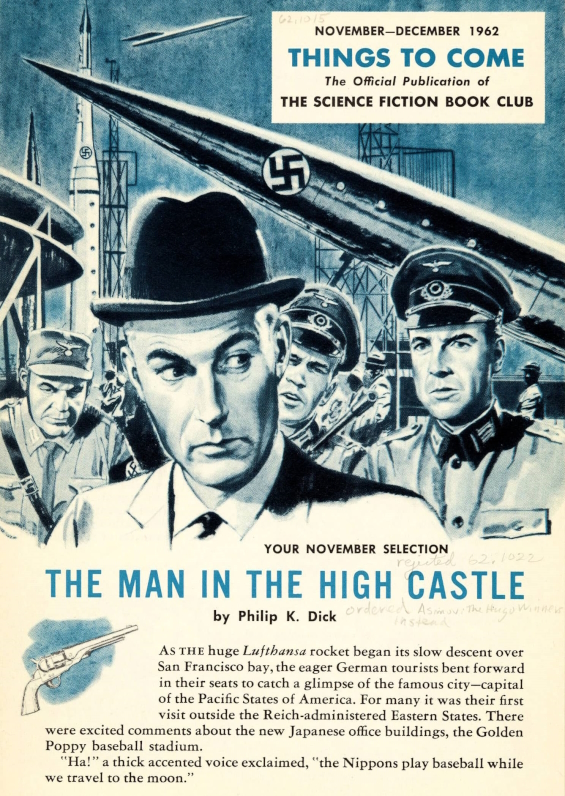
Posted by Jesse Willis

 The SFFaudio Podcast #358 – Jesse, Paul, and Marissa talk about The Simulacra by Philip K. Dick.
The SFFaudio Podcast #358 – Jesse, Paul, and Marissa talk about The Simulacra by Philip K. Dick.